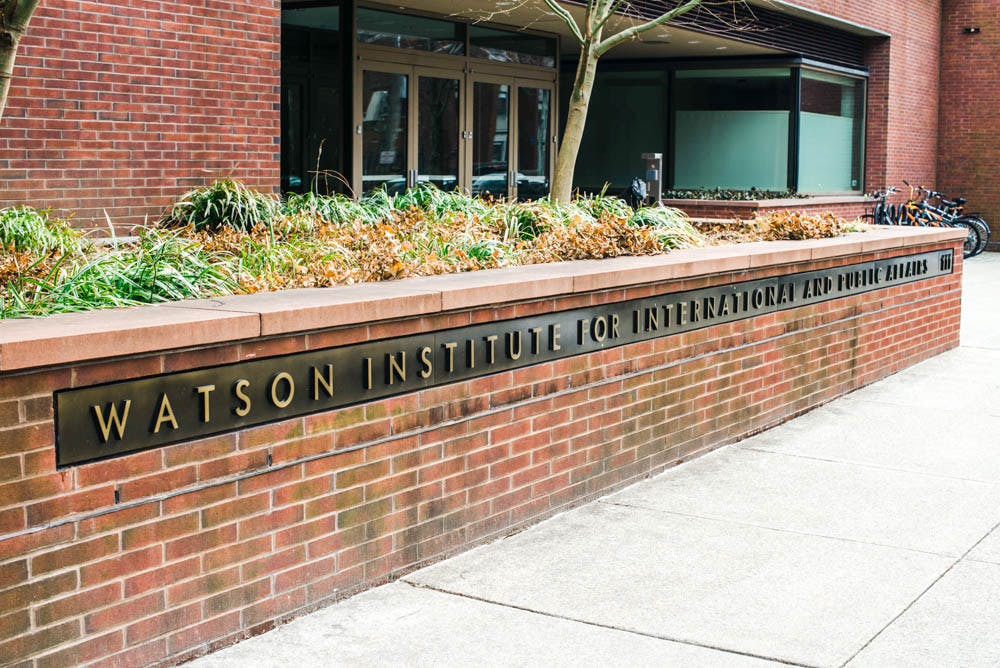While speaking to students about her documentaries on the immigrant experience, Columbia Journalism School Professor Nina Alvarez addressed misconceptions surrounding the American dream and immigration into the United States.
Throughout the Monday evening lecture, titled “The Perfect Immigrant and Other Myths,” Alvarez showed how federal immigration policies that were first implemented years ago could still affect perceptions of immigration today. “Past policies are kind of what got us where we are now,” she told The Herald, referencing a rise in anti-immigrant sentiment in the United States.
Later in her talk, Alvarez used clips from her 2012 documentary that aired as part of the PBS series “Latino Americanos” to critique the persistent myth that immigrants pose a “burden on our economy and our taxes.” The PBS series focused on the waves of immigration that occurred mid-20th century from Puerto Rico and Cuba to the United States.
The rise in immigration fueled a narrative that “what immigrants must receive in support has supersede(d) what immigrants end up contributing,” she said.
Alvarez also discussed her upcoming documentary “This is My Country,” which explores the lives of Salvadoran immigrants who currently face uncertainty in maintaining their Temporary Protected Status. In 2017, the Trump administration said they would suspend the program, which allows individuals from disaster-ridden countries to remain in the United States. In November, the Department of Homeland Security said these temporary protections would apply through January 2021, as courts debate the legality of the program’s suspension.
The Trump administration’s attempts to phase out the program, which affects over 400,000 people in the United States, illustrate an effort to draw a distinction between immigrants in the country, Alvarez said. Specifically, by ending TPS status, the administration indicated the existence of an “undesirable immigrant as a burden and the perfect immigrant, who is a contributor” in the country, she added, further describing how this separation disregards the dire circumstances that led the migrants to look to the United States for help.
Audience members were particularly drawn to Alvarez’s discussion on the current immigration debate. Andrea Vega Troncoso ’20, who attended the talk, appreciated Alvarez’s analysis of the TPS issue.
“It’s important to talk about the TPS story because I think it’s overshadowed by other immigration issues,” she said.
Chaelin Jung ’23 echoed her appreciation for Alvarez’s approach to covering TPS.
“Alvarez’s resounding theme to focus on the stories of migrants was also a very necessary reminder of the need for people-centered journalism,” she said.
Further, Alvarez explored the increasingly popular sentiment that the American Dream has become a mere myth, an idea engendered by rising economic inequality and the escalation of open hostility toward immigrants.
“Americans have fully bought into the idea that there isn’t enough to go around,” Alvarez said, referencing a concerning trend that has compounded fears among immigrants that they cannot succeed in the United States.
But in light of this popular sentiment, Alvarez suggested that the fraying idea of the American Dream warrants new conceptions of immigration altogether. Alvarez said she hoped personal stories featured in her documentaries might encourage Americans to consider that immigrants in fact “expand (the country’s) possibilities.”
The Center for Latin American and Caribbean Studies, which hosted Alvarez, will continue to sponsor similar lectures for their “Storytelling in Americas: Journalism, Gender, Fiction and Borders” series throughout the year.





